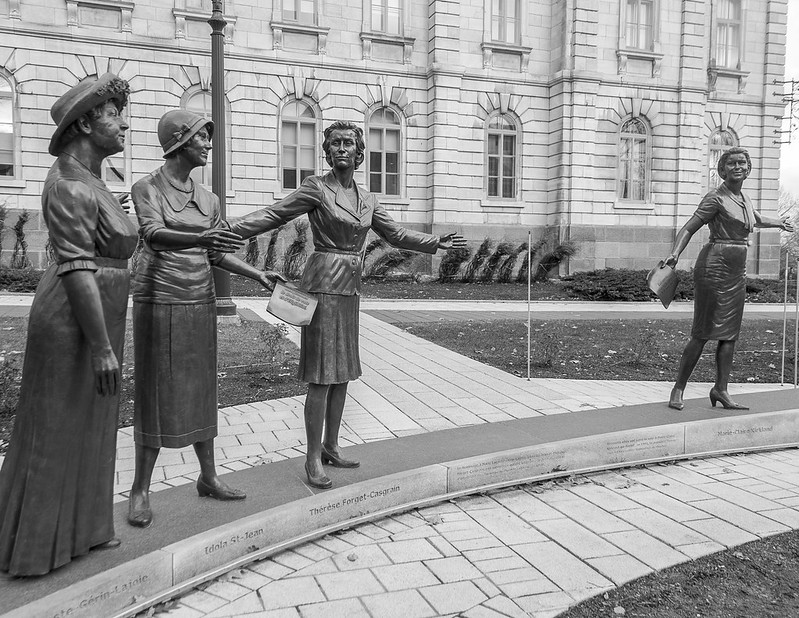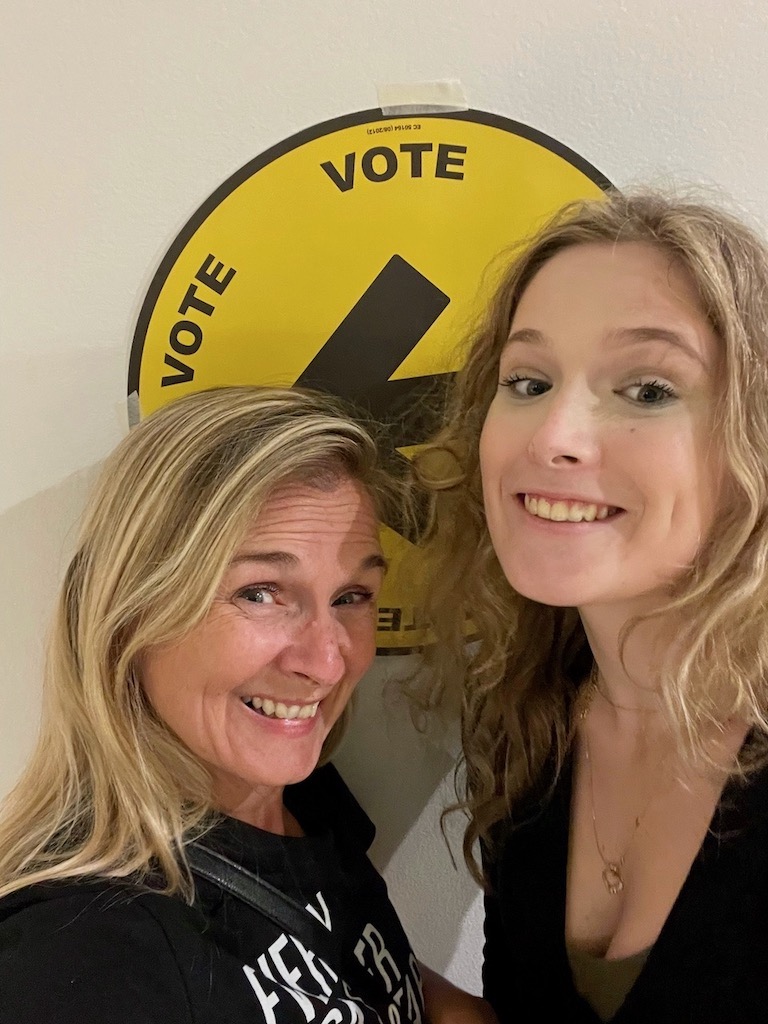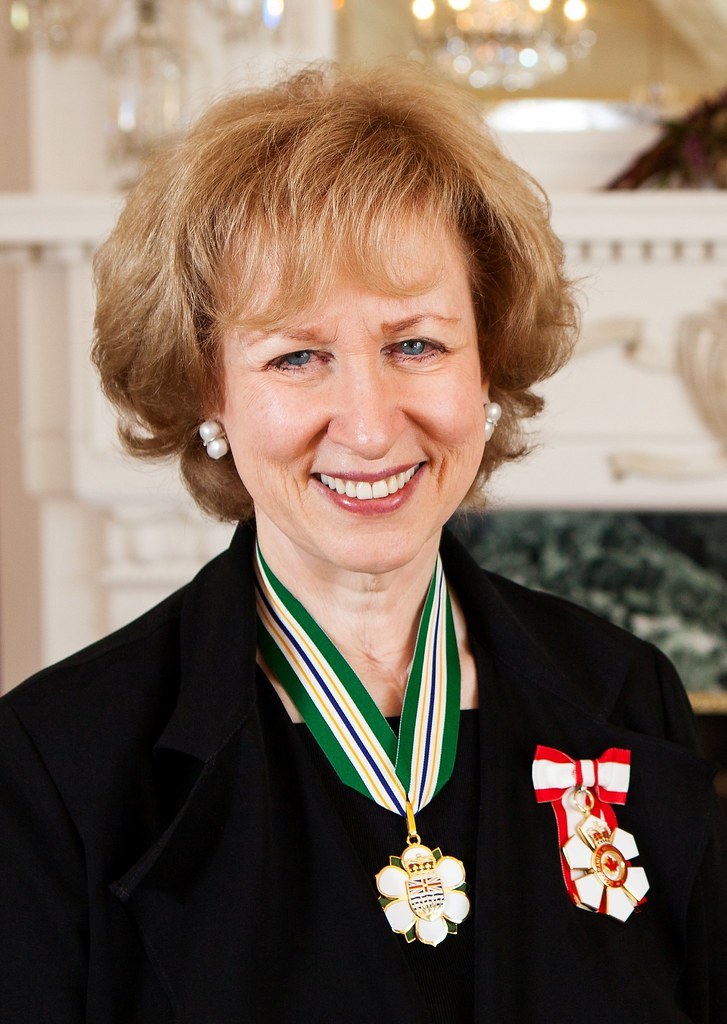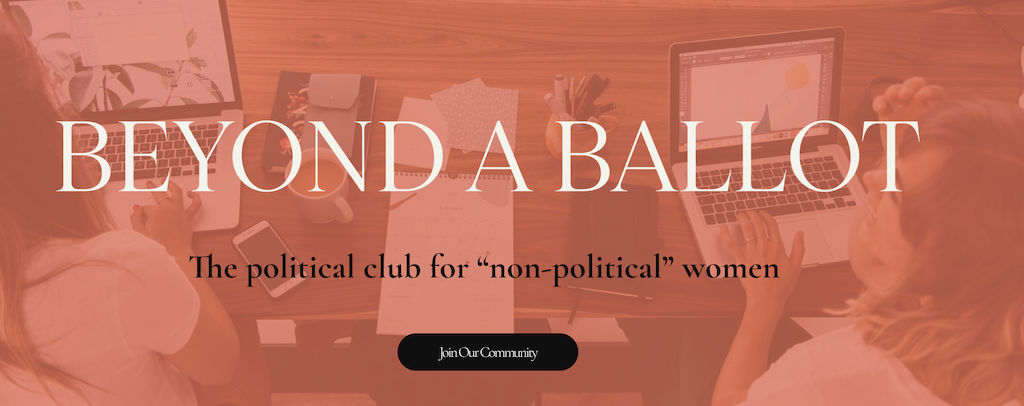We need more women in politics—a “no-shit Sherlock” statement, I’m aware. However, the stark reality is that we don’t have enough women engaged in politics, from government positions at every level to informed voters. This shortfall is largely due to the spaces where discourse happens becoming polluted with hyperpartisan attacks, often accompanied by threats of violence against women. The narrative has deteriorated to such an extent that women are running for the hills, disengaging, and checking out in record numbers. The suffragettes must be rolling in their graves.

I’ve always been a politically-minded person, a passion kindled at my family’s kitchen table amidst lively discussions with my parents. As a child, I watched with fascination as my parents got into heated discussions about the political news of the day, then happily went off to bed later that same night, seemingly still very much in love. I was amused when they would don their coats to walk over to the polls every election day, gently ribbing each other about cancelling out each other’s votes. When I became old enough to vote, things got really interesting. Sometimes my opinions aligned with my father’s, sometimes with my mom’s, and sometimes with neither. Our kitchen table, despite its small size, was truly multi-partisan and loud. It still is.
Since I turned 18, I’ve voted for every major political party in Canada at one point or another, as have my parents. Our views have naturally shifted over the years, which is NORMAL. I’ve never fallen in line with the party line, and I see that as a positive. In fact, a lot of Canadians feel this way—63%, to be precise. The danger of hyper-partisanship, in my view, is that it encourages tunnel vision. The current discourse often boils down to “My guy is perfect, but yours has cooties.” When we start to idolize political party leaders, we’ve entirely lost the plot. Yes, they are there to lead, but it’s the platform they stand on that’s more important. But I digress.
Despite my parents’ divergent views, they were united in teaching me the critical importance of voting. However, they did warn me about discussing politics and religion in polite company—a restriction that I believe has fundamentally damaged our society. Of course, we should be discussing politics; there’s nothing it doesn’t touch in our lives.

But discussion, actual dialogue, is not what we have in the digital age. Political discourse has proliferated on social media over the years, yet it often devolves into unproductive exchanges: name-calling, shouting, blocking, and cancelling. The art of dialogue, essential for resolution, seems lost, with politicians prioritizing point-scoring over genuine problem-solving, and voters either being pulled into the fray or walking away in disgust.
The underrepresentation of women in politics is alarming. Despite making up more than half the electorate, only 28% of us feel adequately informed enough to vote. I understand the challenge; we have a lot on our plates. We juggle multiple roles as partners, parents, employees, and more, all against a backdrop of massive inflation, climate change, and a stress-inducing 24-hour news cycle. Engaging in politics meaningfully often feels like one more task on an endless to-do list. However, as Kim Campbell stated brilliantly in a recent episode of Beyond a Ballot, when asked why women should vote, her response was, “because our lives depend on it.” Nailed it.

It’s crucial for us to engage, not just as voters but as informed participants in our democracy, to ensure that policies reflect our needs and contribute to a more equitable society. Trust that from the bedroom to the boardroom and beyond, politics is in your life and loves you even if you don’t love it. Don’t let it become an abusive relationship.
The following are just some of the ways politics impacts your life, but this list is by no means exhaustive.
The Broad Impact of Politics on Women’s Lives in Canada
- Healthcare: Federal policies determine the scope of women’s healthcare, including reproductive services and maternity care, safeguarding our fundamental health rights. At the provincial level, the delivery of healthcare services, including access to reproductive health, varies, affecting our ability to receive consistent and comprehensive care.
- Employment and Workplace Rights: Legislation at both federal and provincial levels addresses critical issues such as equal pay and maternity leave, striving for a fairer workplace. Additional protections, like extended parental leave and specific safety standards, further support our work-life balance and career advancement.
- Education: Education policies, from national to provincial, influence the quality and accessibility of education for girls and women. Initiatives aimed at encouraging participation in STEM fields are vital for dismantling barriers and promoting gender equality in education.
- National Security and Foreign Affairs: Federal policies in these areas have distinct implications for women, especially in how Canada addresses women’s rights on the international stage and in conflict zones, reflecting our commitment to global gender equality.
- Local Governance and Daily Life: Decisions made by municipal governments affect our everyday lives, from public transportation policies that impact our safety and mobility to zoning and development choices that influence the availability of affordable housing and childcare.
- Cultural and Societal Norms: Political discourse and decisions at all levels shape societal norms about gender roles, influencing women’s participation in politics, representation in leadership, and the broader conversation about gender equality in Canadian society.
Engaging in the political arena requires courage, particularly for women. Whether as politicians, pundits, journalists, or informed voters, women are disproportionately targeted with online hate and threats of violence, effectively silencing many and diminishing our significant stake in the political landscape.
We also know that not participating is equally dangerous. We need more women in politics, and that starts with dialogue, which includes listening as much as speaking, and moving beyond being mere keyboard warriors. The question then becomes, where can we engage in such dialogue? This is the issue Amanda Alvaro and Rachael Segal are working to address with Beyond a Ballot.

Amanda and Rachael, two political communications experts from opposite sides of the aisle, recognized the need for a space where women can engage politically. They envisioned a place to cut through the noise and provide a community for women across Canada who are seeking to be better informed—a political club for non-political women.

Admitting ignorance is not a weakness. I don’t always get it right; sometimes, I rush to judgment, and I’ve been known to mutter names under my breath about certain politicians. Fine, I sometimes get shouty about it in my own home. Yet, none of this deters me from being an active participant in our democracy. As Rachael noted in our podcast, the goal isn’t to judge your opinions but to encourage you to have one, ideally an informed one.
When it comes to politics, ignorance is far from bliss. You wouldn’t let someone else choose your haircut, your clothes, or your meals, so why relinquish control over matters that significantly impact our lives? Good governance stems from a populace deeply invested in democracy.
I encourage you to listen to my complete interview with Amanda and Rachael. There’s no shouting, name-calling, or theatrics involved—just a clear demonstration that respectful and constructive political engagement is achievable, and women can spearhead this new era of dialogue.